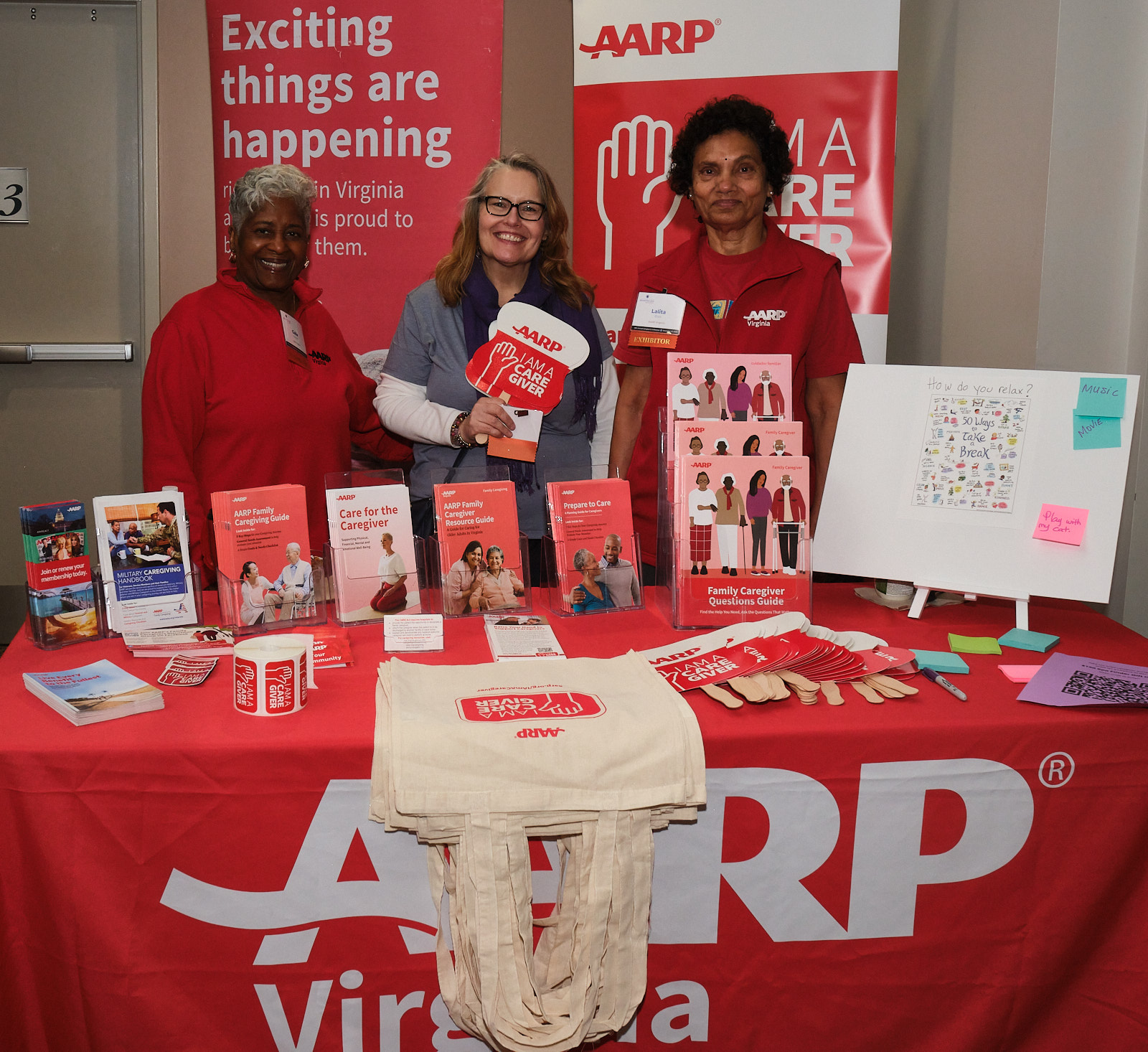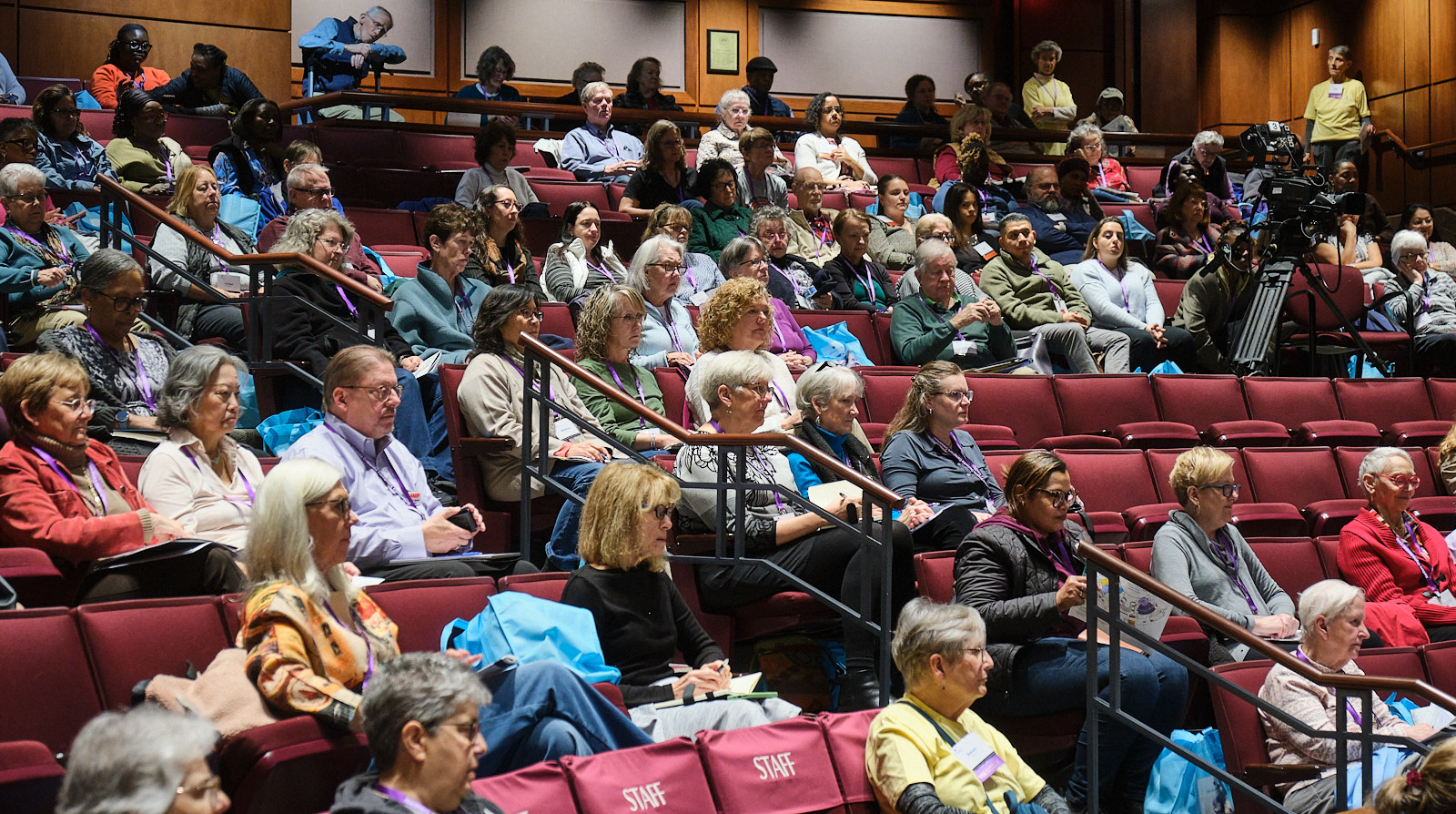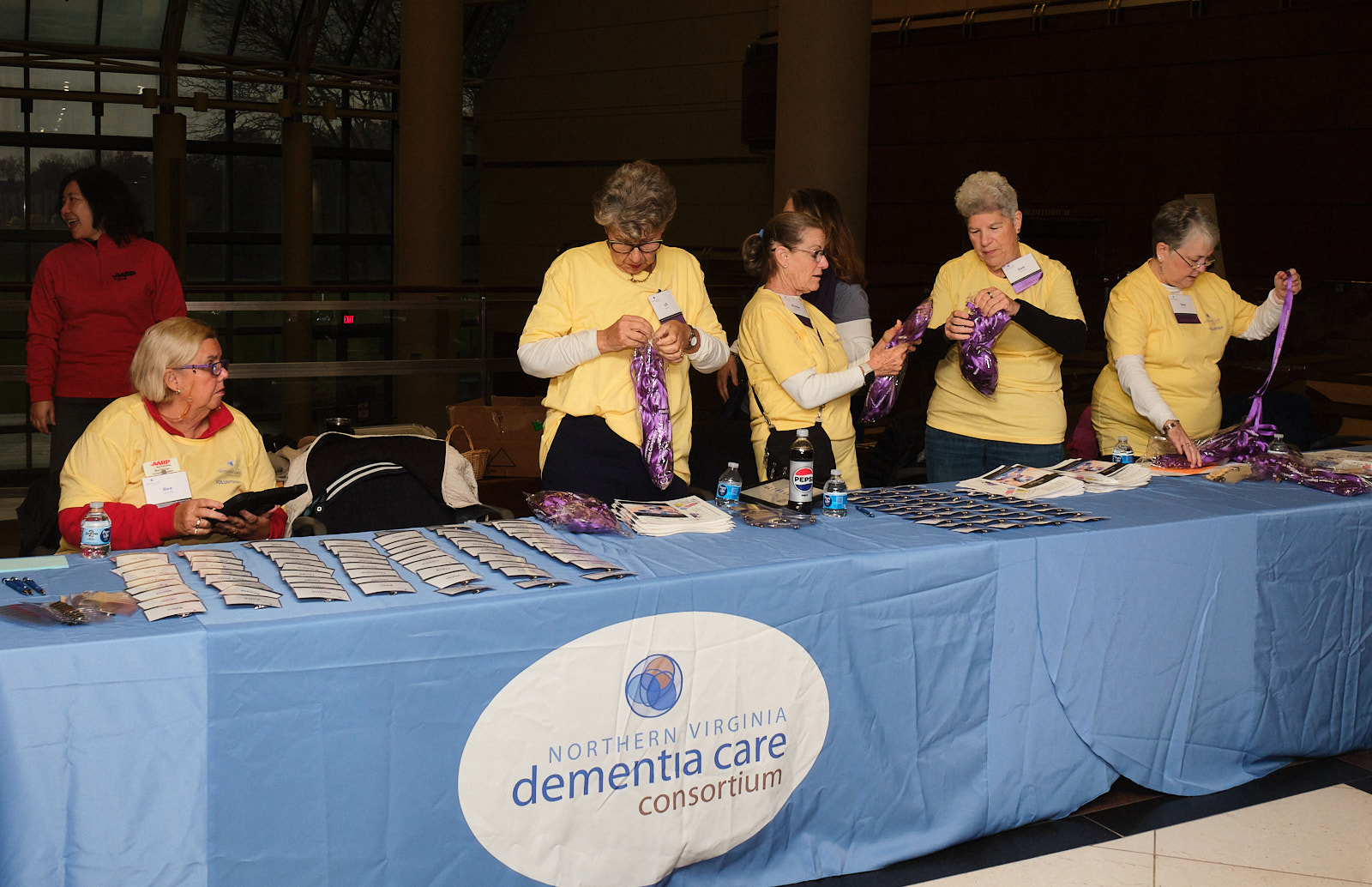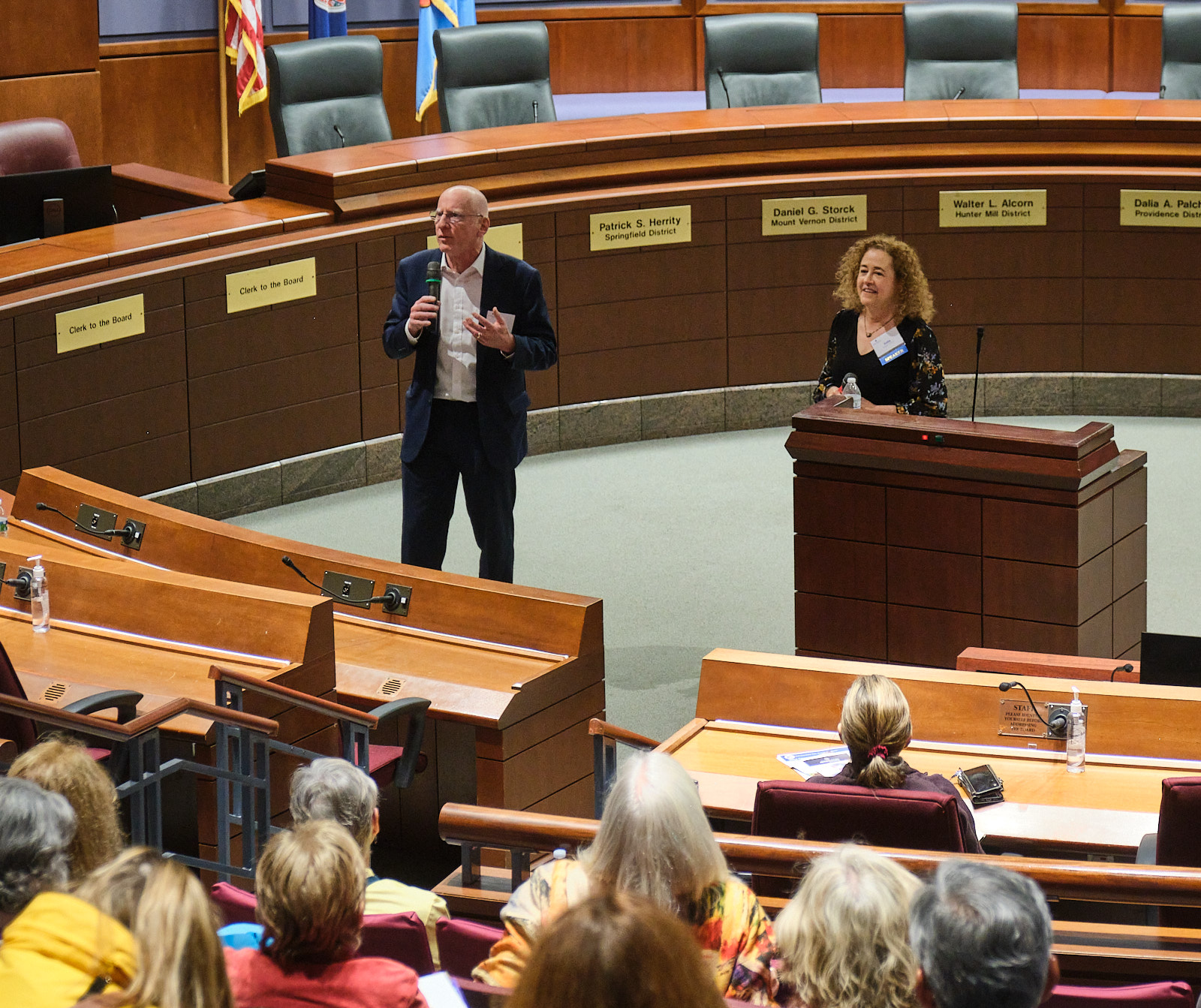AARP Hearing Center

Family caregivers, volunteers working with older adults and professionals in aging services gathered Nov. 22 for the 39th annual Northern Virginia Dementia Care Consortium Caregiver’s Conference, an annual event to help them connect with each other, learn new ways to engage with people with dementia and be better prepared to provide care and support.
Keynote speakers and panelists offered their expertise on the many challenges facing dementia caregivers and care recipients, from complex health care decisions to finances to difficult family dynamics.
Some 63 million Americans engage in some form of caregiving, according to a report earlier this year from AARP and the National Alliance for Caregiving. That care, keynote speakers Barry Jacobs and Julie Mayer noted, comes with its own positives and negatives. Jacobs and Mayer, a married couple who are clinical psychologists, are co-authors of “The AARP Caregiver Answer Book,” which was released in July. They have counseled caregivers for more than 30 years and served as caregivers to their parents.

The positives of caregiving often include the rewards of service but the negatives include dealing with inevitable grief, they said. That grief may show up in ways beyond the obvious.
“We don’t always feel grief as grief,” Mayer said. “Sometimes we feel it as impatience and anger and intense stress.”
“There’s so much loss, there’s so much grief in seeing someone we care for declining,” Jacobs said.
The two suggested several strategies for caregivers, including finding a support group and looking for online and in-person resources to provide education and support. They said caregivers should approach their service with a learning mindset and accept that they will never be perfect at dealing with a very complex set of responsibilities.
“We have to really give ourselves grace right out of the gate because we’re going to make mistakes,” Jacobs said. Caregivers can’t do it all, but they can help make sure their care recipient is well cared for, he added.
“The attitude that you have makes a big difference,” Mayer said.
The daylong conference also included sessions on the financial and legal aspects of caregiving, building care plans, support systems for LGBTQ+ caregivers, self-care and resilience, and a catch-all “Ask a Dementia Expert Anything” session. There also were booths from vendors who serve the community, along with free health screenings.

Speakers in the various sessions often emphasized the value of planning. From care to finances, planning helps set realistic expectations and reduces stress on caregivers, they noted.
In a session about building a care plan, neurologist Dr. Farrah Daly, noted the need to build and develop frameworks for care that have some flexibility. Daly, the vice president and president-elect of the International Neopalliative Care Society, outlined seven keys for patients and families to navigate a life-changing diagnosis. Those keys included staying positive while also seeking honest, seeking accurate information, working to tailor your care to match your values, anticipating the ripple effects of the diagnosis and initiative conversations with your health care team.
Experts on the financial and legal panel noted the many issues caregivers may face as they deal with some of the thorniest challenges of providing care. Again, adequate planning can help ease many problems, they said. Some of those almost certainly will require expert assistance, but that doesn’t mean caregivers are powerless in the planning process, the panelists noted.
“My job is to give you permission to plan for yourself,” said Arvette Reid, a health care planning strategist for Signature Estate and Investment Advisors, which is a registered investment advisory firm with offices around the country. That plan needs to include how the care recipient’s money will be organized in the future to deal with various tax and Medicaid issues, she noted.
Every family of a care recipient should have a power of attorney, an advance medical directive, burial instructions and a trust that can make a trustee legal owner of a care recipient’s property, said elder law attorney Mark Christopher, a principal with the law firm of Yates Campbell LLP in Fairfax.

A session on alternative support systems for LGBTQ+ care partners looked at the dementia risk factors faced by people in the community. LGBTQ+ individuals with dementia face stigma from sexual orientation/gender identity as well as stigma from the actual dementia diagnosis, noted Dawn Jefferson, education and support coordinator for Insight Memory Care Center in Fairfax.
Caregivers need to face a number of potential health issues, said Sydney Palinkas, education and outreach coordinator for RAFT, a program that provides mental health services to older adults and those who serve them in northern Virginia. Those issues include high blood pressure, constant tiredness, increased use of alcohol and frequent infections. Palinkas said.
In the closing keynote, Rachael Wonderlin, a dementia care consultant, gerontologist and owner of consulting and education company Dementia by Day, talked about the need for caregivers to “embrace the reality” of dementia patients. That means meeting those patients at their cognitive level, no matter what that might be.
Taking this action requires caregivers to understand what is real for care recipients and respond in a way that makes sense in that reality, Wonderlin said. For example, if a dementia care recipient starts asking about the whereabouts of long-deceased parents, an appropriate response might be, “Where do you think they are?” or “I haven’t talked to them for a while,” rather than reminding care recipients that their parents are deceased.
Items such as somewhat realistic baby dolls or stuffed animals may help dementia patients build a cognitive reality, Wonderlin said, but “they must look real without being creepy.”
“We want to find out what is true for (dementia patients) so we don’t paint ourselves into a corner and do the wrong thing,” she said.
The conference is organized by a group of organizations that includes AARP Virginia. It is designed to offer information about treatment, research, support and services that promote the well-being of caregivers and care recipients. More than 300 people attended this year’s conference.































































